Europe Is Burning
Ever since the earliest days of the Republic, American intellectuals, artists, and statesmen looked to Europe for models. Conservatives felt attracted to the continent’s sense of continuity and tradition, and as the base for Christianity. More recently, progressives saw in European social democracy and globalist pacifism a role model to be embraced.
Yet today Europe seems not much of a model for much of anything outside of museums, charming cathedral towns, and terrific food. The notion that Europe represents the future, nurtured by the likes of Mitterrand advisor Jacques Attali, Jeremy Rifkind’s utopian European Dream, and the American journalist T.R. Reid’s 2005 The United States of Europe: The New Superpower and the End of American Supremacy, seem utterly delusional.
A common theme in the early years of the millennium was that Europe was on the verge of global resurgence while America was in decline. Europe’s eventual stagnation, as many conservatives point out, can be in part traced to an ever expanding high-tax welfare state that generally absorbs roughly ten more percentage points of GDP than in the U.S. But this is not the only explanation. Some of the moderately better off European economies, like Denmark and Sweden, are welfare states but manage to outperform the rest.
The real problem is civilizational. Europeans are unwilling to preserve their industrial base and control their borders, leaving the continent increasingly weak and largely defenseless. The leaderless American empire may be creaking, but Europe is in worse shape, hemmed in by dismal demographics, high taxes, suffocating regulation, and an entrenched bureaucracy that makes California seem like a libertarian paradise.
Europe’s decline can be seen in its rapidly shrinking portion of the global economy. It is hard to find any indicator that the continent is gaining global market share as money continues to pour into the U.S. For the last 15 years, European wages have fallen while those in the U.S. have continued to rise; the eurozone economy grew about six percent, measured in dollars, compared with 82 percent for the U.S., according to International Monetary Fund data.
European quality of life is dropping, its industrial base eroding, and there seems little promise of future improvement. Europe now lags in virtually every major advanced industry, from software and space to automobiles. Of the top 50 tech firms only three are located in Europe; the list is dominated largely by the United States with China second. Foreign investment has plummeted and by 2022 accounted for $100 billion less than the U.S.
Much of this decline is self-inflicted, which suggests some valuable lessons for us. A critical problem lies in E.U. climate policy, which has tended to be more extreme, and widely implemented, than in a more divided, decentralized United States. These policies are already eroding food production and sparking higher prices. Developing nations need more food production from exporters, but by Europe’s banning or restricting critical fertilizers, or the enforced culling of herds, they will have to get it elsewhere. This comes at a time when Europe’s old African and South American colonies are losing interest in ties with France and Britain and increasingly look elsewhere, notably China and Russia, for capital, goods, and natural resource development.
Read the rest of this piece at American Mind.
Joel Kotkin is the author of The Coming of Neo-Feudalism: A Warning to the Global Middle Class. He is the Roger Hobbs Presidential Fellow in Urban Futures at Chapman University and Executive Director for Urban Reform Institute. Learn more at joelkotkin.com and follow him on Twitter @joelkotkin.
Photo: GNRC via Wikimedia under under CC 4.0 License.


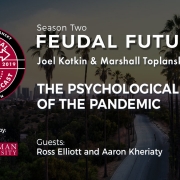
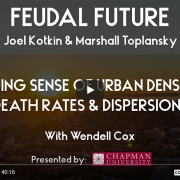
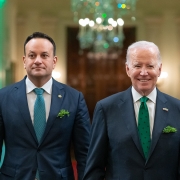
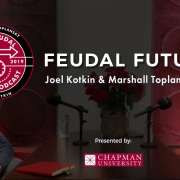
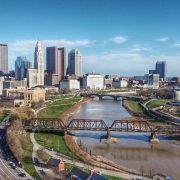 J. Jessee, CC 2.0 License
J. Jessee, CC 2.0 License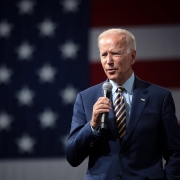 Gage Skidmore, used under CC 2.0 License
Gage Skidmore, used under CC 2.0 License
 Gage Skidmore, used under CC 2.0 License
Gage Skidmore, used under CC 2.0 License